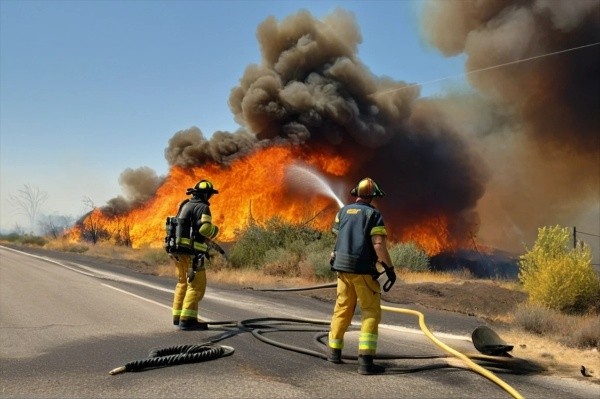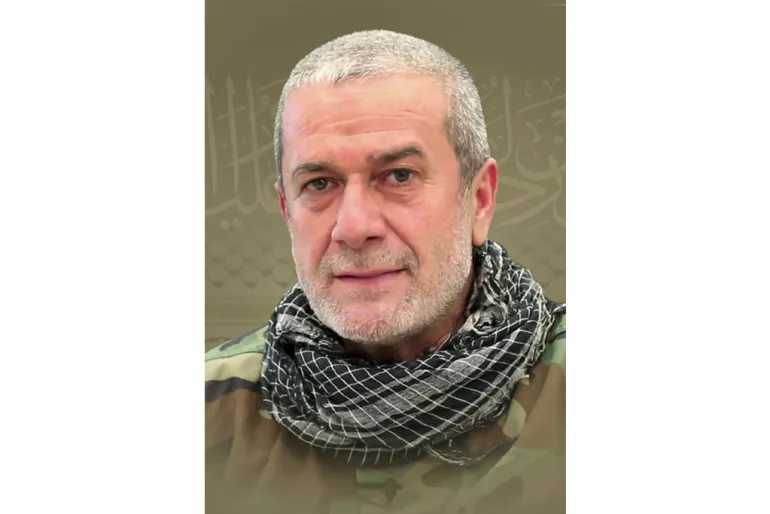Iran’s Plan to Strike Back Against the U.S.
Iran’s Military Preparations Following U.S. Attacks
Loading...

Muhammad Nimah Nasser is at least the third senior commander killed in cross-border fighting since October.
Tensions have escalated dramatically on the Israel-Lebanon border following the killing of a senior Hezbollah commander by Israeli forces. The Iran-aligned Lebanese group responded by launching a barrage of 100 Katyusha rockets at Israeli military positions, raising fears of a wider regional conflict.
Hezbollah announced on Wednesday that Muhammad Nimah Nasser, also known as "Hajj Abu Naameh," had been killed in an Israeli attack in southern Lebanon. The Israeli military confirmed targeting Nasser, describing him as a "counterpart" to another high-ranking Hezbollah official killed in June, and in charge of "antitank and rocket fire from southwest Lebanon."
This marks at least the third senior Hezbollah commander killed in cross-border fighting since October, highlighting the intensifying nature of the conflict. The group's response was swift and forceful, demonstrating its capability and willingness to retaliate against Israeli aggression.
The escalation comes amid heightened rhetoric from both sides. Israeli Prime Minister Benjamin Netanyahu recently stated that Israeli forces must shift their focus to northern Israel, while far-right ministers have called for a full-scale invasion of Hezbollah-controlled territory in Lebanon. Israeli Defense Minister Yoav Gallant warned of Israel's capacity to take "Lebanon back to the Stone Age," while emphasizing efforts to prevent a wider war.
Hezbollah leader Hassan Nasrallah countered by declaring the group's readiness for war with "no restraint and no rules and no ceilings" if Israel launches a major attack. Iran, Hezbollah's primary backer, has warned that "all Resistance Fronts" would confront Israel if it attacks Lebanon.
The international community has expressed growing concern over the situation. French President Emmanuel Macron urged Netanyahu to prevent a "conflagration" between Israel and Hezbollah, emphasizing the potential harm to both Lebanon and Israel. U.S. Envoy Amos Hochstein was set to meet with French officials in Paris to discuss the crisis.
The ongoing conflict has already taken a significant toll. At least 543 people, including 88 civilians, have been killed by Israeli attacks in Lebanon since October. On the Israeli side, 21 people, including 10 civilians, have lost their lives in attacks by Hezbollah and other armed groups from Lebanon.
This border conflict is intrinsically linked to the wider war in Gaza, which has seen at least 37,953 Palestinians killed since October 7, according to Palestinian health authorities. The Gaza war was triggered by a Hamas-led attack on southern Israel that killed approximately 1,139 people.
Hezbollah has maintained that it would cease fighting "without any discussion" if a full ceasefire is reached in Gaza, a position reiterated by its deputy commander Sheikh Naim Kassem just a day before the latest escalation.
As both sides continue to exchange fire and threats, the international community watches with growing alarm. The potential for this localized conflict to spark a wider regional war looms large, with significant implications for stability in the Middle East and beyond. Diplomatic efforts to de-escalate the situation remain crucial in preventing further loss of life and averting a potentially catastrophic expansion of the conflict.

Editor
Iran’s Military Preparations Following U.S. Attacks
Troops remain in five strategic locations, raising fears of renewed tensions and long-term occupation.
Opposition forces have taken control of the capital after a significant offensive. Here is how it unravelled.
